Cornell on Fire Weekly 5/8
Dear Cornell on Fire,
It’s that time of year again on the campus calendar: Slope Day! Seeing the preparations under way, I was reminded of how it felt to be an undergraduate student on the verge of release from the pressure and routines of the academic year at an elite university: ready to make memories with friends through a giant rite of passage. But I took a pause when a friend said to me: Imagine if instead, Cornell had an end of year celebration connected to the Earth. What would it look like?
Maybe one exists somewhere but I never experienced that student party. I only know this kind – polluting, wasteful, ending in hangover –not just the one afflicting over-enthusiastic celebrants, but the environmental one that we all must suffer indefinitely. From the pesticides and fossil fueled lawn mowers used to maintain traditional photoshoot backdrops, to the mass sale of food and drinks in disposable packaging, to the energy costs of hosting chart-topping performers, has the time come to find ways to celebrate at Cornell that are less costly to life?
To turn events like Slope Day or commencement into an engagement with our common home, we would have to discard some cherished traditions. But we retain them at an untenable cost. Lest we forget it, a newly released poll of hundreds of climate scientists reminds us of the dire future ahead without an urgent change of course. It is clear that we will only keep a habitable planet if we eliminate most high consuming practices. This means major shifts to modern Western cultural values and habits. Putting the crisis to our collective habitat front and center requires more than assuaging guilt by off-setting emissions or allotting times, places and funds for ‘green’ side projects. We need real cultural transition that sees the health of soil, water, air, and biodiversity, from local to global, prioritized in every dimension of human activity. Celebrations could in fact be a great starting point for this transition, precisely because they feel good, create bonding moments that we remember, and result in traditions that we repeat and pass down.
And what if an Earth-friendly celebration was not a loss, but a gain? Could an environmental alternative to Slope Day be a unique, elating, memory-making outdoor experience with friends? Of course. Could it be a collective emotional release and source of recuperation from the pressures of the semester? Absolutely.
Sea of Plastic Waste: An image taken hours after Slope Day ended on May 8, 2024.
We can find inspiration in many places. Indigenous and peasant traditions of honoring our connection with the land have much to teach us as we transition to a culture that supports a livable future. And many people who have not grown up in such cultures are already on a journey of rethinking and reconnecting. Look around you and it is not hard to find vision and inspiration close by. Just last week, a young boy I know put in a request to make the Ithaca Parade fossil free this year. If accepted, the event will likely not include fire trucks, a mainstay of parades in the US. But think how much more enjoyable and healthy it will be for everyone participating or cheering on the spectacle, and for all creatures living in the vicinity, without fumes or engine noise!
My young co-conspirator’s request is for just one modest change, but it is one that requires a shift in mindset. And with the right mindset, we could do so much more. Imagine if this kind of thinking went into planning Slope Day, commencement, and every celebratory event in the university calendar. As we start to think in this way at Cornell we notice spaces, activities and events on campus whose maintenance is still destructive and incompatible with a livable future, despite positive adjustments already enacted by the campus sustainability office and other colleagues. We need top-down leadership for systemic transition at Cornell. True, the content of Slope Day is voted for by the students, but what kind of education have they had on our current predicament? Cornell should be educating its students to understand deeply the scale of the crisis we are in and make appropriate decisions as citizens and future leaders. It is not yet doing so.
Slope Day trash litters the lawn as staff begin cleanup efforts on May 8, 2024.
With a shift in thinking, we can come up with creative, meaningful, environmentally restorative collective experiences, for the small celebrations and the big ones. We need a university that fosters this culture change among its students, instead of a head-in-the-sand approach. We need a Cornell leadership that enacts systemic change at the pace necessary for the survival of life, and models new ways of celebrating that embrace a connected future. We can all help get them started by talking about it.
Join us for celebrations:
Thursday, May 9, 6:30-8:00pm: Cornell on Fire Working Group meeting.
On Ho Plaza this Friday, 11-12:30: Office Hours for conversation and connection.
Happy end of classes and here’s to a different party next year!
With appreciation,
Cornell on Fire
* * * * *
Anonymous reports can be submitted to Cornell on Fire through our whistlelink channel.
* * * * *
Plurivocality: CoF Weeklies are written by a revolving team of writers. Our movement is diverse, so are our thoughts, and so will be our Weeklies. If you receive a CoF Weekly that you think this is wrong headed, can we still walk together? (We, like you, sometimes write things we later laugh at!)



